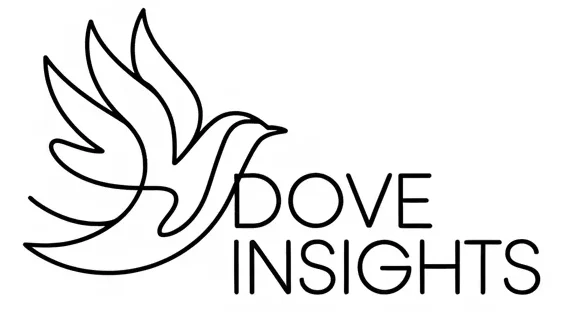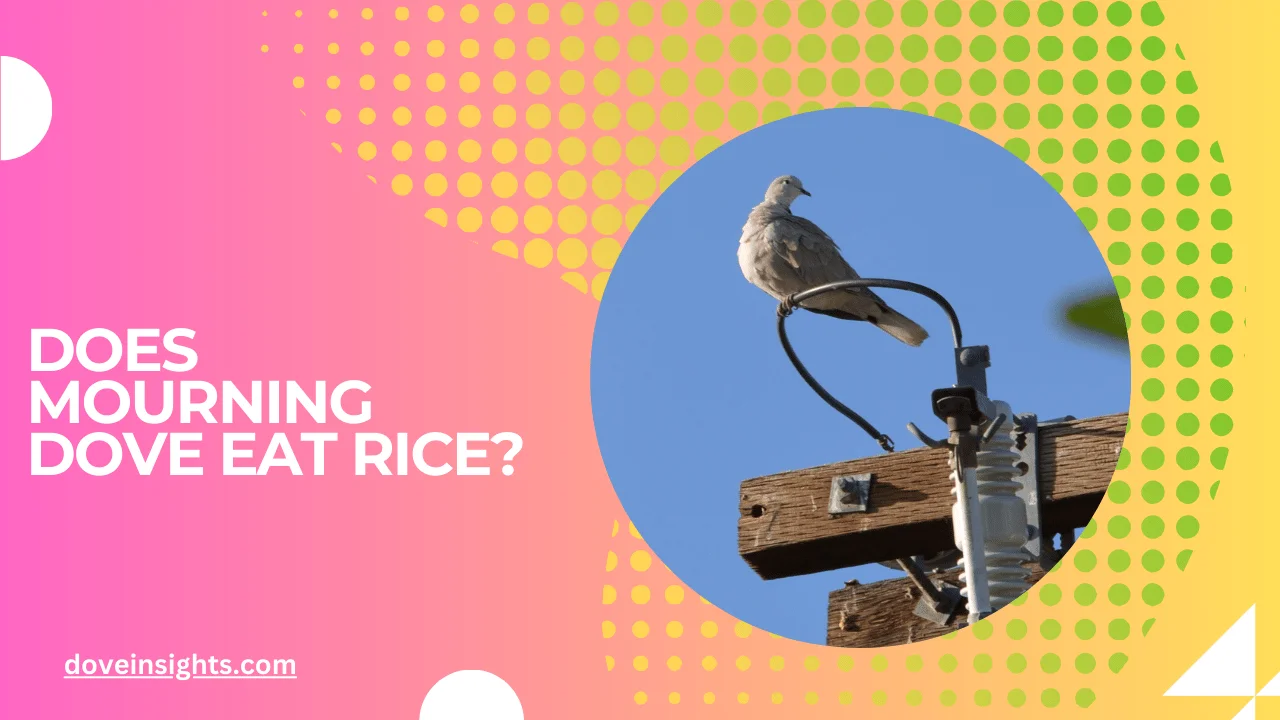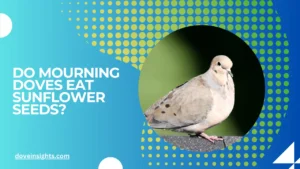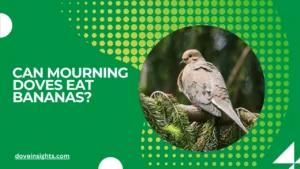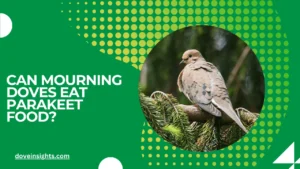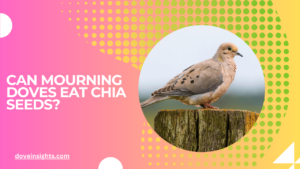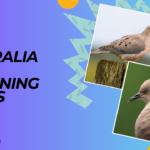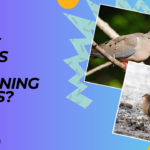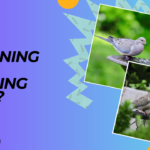Mourning doves are one of North America’s most common and graceful birds.
Their soft, cooing calls often bring peace to the landscape, but when it comes to their feeding habits, there’s a common misconception that they thrive on a diet of rice. Whether it’s a myth perpetuated by weddings where rice is thrown at the newlyweds or rumors spread online, the question remains: do mourning doves really eat rice?
This question is important for both bird enthusiasts and those who want to create a welcoming environment for these lovely creatures.
Understanding a mourning dove’s diet is key to ensuring they get the nutrients they need while also debunking any myths surrounding their feeding habits. In this article, we’ll dive deep into the diet of mourning doves, examining the truth behind rice consumption and exploring what these birds actually eat in their natural habitats.
Contents
- 1 The Mourning Dove’s Natural Diet: What Do They Really Eat?
- 2 The Myth of Mourning Doves Eating Rice: What’s the Story?
- 3 Can Mourning Doves Safely Eat Rice? The Truth About Rice and Birds
- 4 How to Attract Mourning Doves: The Best Food Choices
- 5 What to Avoid When Feeding Mourning Doves
- 6 Conclusion:
- 7 FAQ’s
The Mourning Dove’s Natural Diet: What Do They Really Eat?
Mourning doves are primarily granivores, which means their diet consists mainly of seeds. They are known for their efficient foraging habits, often feeding on seeds that are found in fields, grasslands, and gardens.
While they are especially fond of sunflower seeds, millet, and sorghum, mourning doves will consume a wide variety of seeds and grains depending on what is available in their environment.
Unlike some species that may be more opportunistic feeders, mourning doves rely heavily on small seeds as their main source of nutrition. This diet helps provide the energy they need for their daily activities, such as flying and foraging.
Rice, however, is not a natural part of their diet. While mourning doves can occasionally be found near rice fields, they don’t seek rice as a primary food source. Instead, they are more attracted to wild seeds and grains that are in abundance during certain seasons.
The Myth of Mourning Doves Eating Rice: What’s the Story?
The idea that mourning doves are drawn to rice likely stems from the tradition of throwing rice at weddings.
It’s common for guests to toss rice as a symbol of good fortune for the newlyweds, and many believe that birds, including mourning doves, flock to this rice. However, there’s little evidence to suggest that rice is a staple in the mourning dove’s diet.
This myth has been further amplified by stories and social media posts suggesting that rice can be harmful to birds. While this is largely a misconception—rice itself is not harmful to mourning doves or other birds in moderate amounts—it’s not a food they seek out actively.
Mourning doves have specialized foraging behaviors that lead them to search for seeds, grains, and other natural food sources, not rice.
The idea of birds consuming rice in abundance at weddings or after events is likely an urban legend, but it has contributed to the myth that mourning doves primarily feed on rice.
Can Mourning Doves Safely Eat Rice? The Truth About Rice and Birds
Although mourning doves don’t naturally eat rice, it is important to know whether or not rice is safe for birds. The misconception that rice expands in a bird’s stomach and causes harm has been debunked.
Uncooked rice, whether thrown at weddings or found on the ground, will not cause harm to mourning doves or other birds. Birds like mourning doves can safely digest rice in its uncooked form without any adverse effects.
However, it’s important to note that feeding cooked rice to mourning doves or any bird is unnecessary. Cooked rice does not provide the nutrients that birds require, and there are far better food options available, such as birdseed, nuts, and fruits.
Feeding mourning doves rice in large amounts could also lead to an imbalanced diet, as rice lacks the essential nutrients found in seeds. In conclusion, rice is safe in small quantities, but it should not be a regular part of a mourning dove’s diet.
How to Attract Mourning Doves: The Best Food Choices
If you’re looking to attract mourning doves to your backyard, offering them the right food can make all the difference. As granivores, mourning doves are most attracted to small, scattered seeds that are easy to find and consume. The best foods to offer include:
- Sunflower seeds (both black oil and striped varieties)
- Millet and sorghum
- Cracked corn
- Wheat
- Safflower seeds
In addition to seeds, mourning doves will also enjoy dried fruits and small grains like oats. These foods provide the essential nutrients they need for their survival and also attract other bird species to your yard.
By creating a welcoming environment with the right food, you can help mourning doves thrive, especially during their mating season or when they are preparing for winter.
What to Avoid When Feeding Mourning Doves
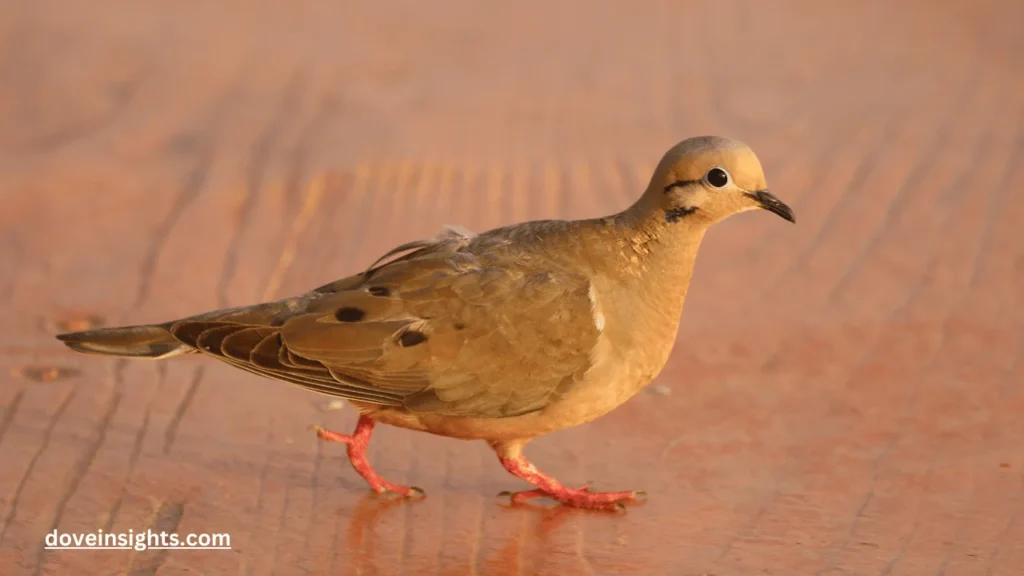
While mourning doves have a simple diet, there are certain foods you should avoid feeding them. Certain human foods can be harmful or offer no nutritional value to birds. Here are some things to keep in mind:
- Processed foods: Foods like bread, chips, and candy are unhealthy for mourning doves and other birds. These foods offer little nutritional value and can harm their digestive systems.
- Salted snacks: Salty foods can cause dehydration and kidney problems in birds.
- Rice as a primary food: While rice in small amounts is safe, it should not be a primary food source. Instead, focus on natural seeds and grains that are more nutritious.
- Chocolate: This is toxic to birds and should never be offered.
It’s always best to provide mourning doves with natural, nutrient-rich foods that align with their natural diet. By avoiding harmful food items, you can help keep these birds healthy and happy in your backyard.
Conclusion:
While mourning doves can technically eat rice, it is not a significant part of their diet. These birds are seed eaters, preferring a variety of grains and seeds found in nature.
The myth that mourning doves consume rice is based on wedding traditions, not their actual feeding behavior. Understanding what mourning doves truly eat—and what they should avoid—helps ensure that these beautiful creatures remain healthy and well-nourished.
By offering the right food and understanding their natural diet, you can better attract mourning doves to your backyard and enjoy watching these peaceful birds in their element.
FAQ’s
Do mourning doves eat rice in the wild?
No, rice is not a natural food source for mourning doves. They primarily eat seeds and grains, such as millet, sunflower seeds, and sorghum.
Is rice harmful to mourning doves?
Uncooked rice is not harmful to mourning doves. The myth that rice expands in their stomachs is false. However, rice should not be a major part of their diet.
Can mourning doves eat cooked rice?
Mourning doves can eat cooked rice in small amounts, but it offers no real nutritional value. It’s best to provide them with seeds and grains instead.
What should I feed mourning doves in my backyard?
You can attract mourning doves with sunflower seeds, millet, cracked corn, and sorghum. These seeds mimic their natural diet and provide essential nutrients.
Can I feed mourning doves bread or crackers?
No, bread and crackers are not good for mourning doves. They lack the necessary nutrients and can lead to health problems.
Why do people think mourning doves eat rice?
The misconception stems from the tradition of throwing rice at weddings, where people believe birds consume it. However, mourning doves are not attracted to rice in large quantities.
